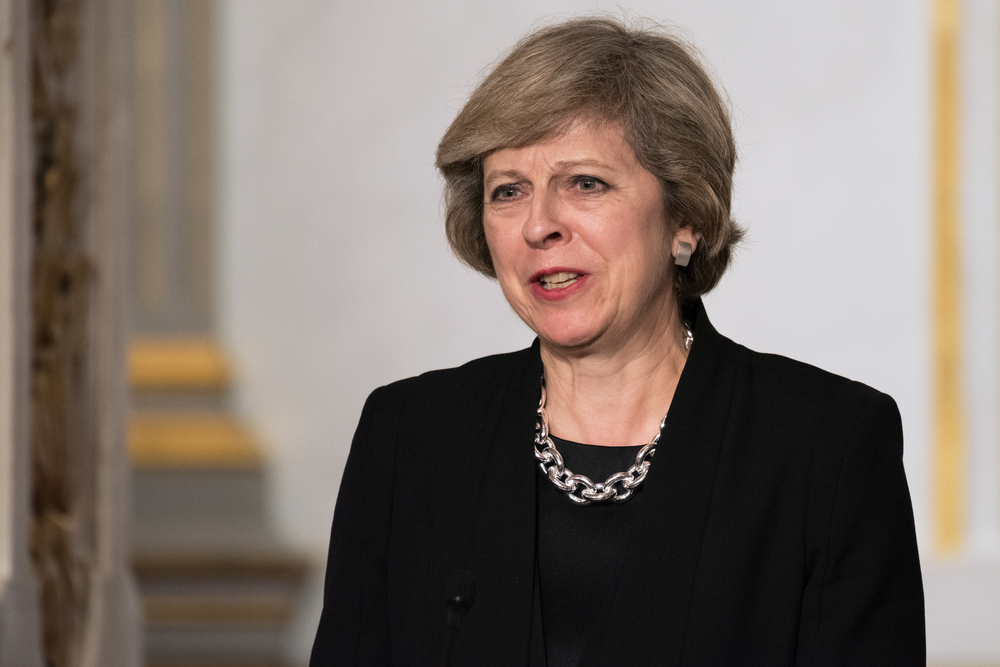Experienced Investor
What a snap election means for your investments

Market volatility is set to pick up ahead of a likely snap general election in June. So, what should investors do?
Prime minister Theresa May has called for a snap general election. If it gets House of Commons approval, it will be held on 8 June.
May had initially vowed not to hold an early election when she won the Conservative party leadership last year, but said she had “reluctantly” sought to do so “to guarantee certainty and stability for the years ahead” as she continues to negotiate the UK’s departure from the EU.
Initial market response
The pound was the immediate big winner from the news that Britain is set for a general election in just seven weeks, with currency markets betting on the incumbent government winning a greater majority, according to Laith Khalaf, senior analyst at Hargreaves Lansdown.
While it dipped to $1.2515 in anticipation of today’s announcement, it then rallied to $1.2670 following May’s speech. It also rose against the euro.
(It’s worth remembering Britain’s currency hit a 31-year low of 1.211 against the US dollar back in January.)
While good news for holidaymakers, the rising pound puts pressure on UK shares as many of the FTSE 100’s biggest constituents earn a substantial amount of their revenues overseas but report their profits in sterling.
The UK’s main index fell 2% in the hours following May’s statement.
Jason Hollands of wealth manager Tilney Bestinvest, says: “A sustained lifting of sterling off its nadir will see a partial reversal of some of the stellar gains UK investors have enjoyed from their overseas holdings over the last year.
“One of the biggest risks facing investors who have notably shunned UK markets in favour of international funds over the last year – and especially those who have piled into the US on the back of the Trump victory – is a recovery in sterling should the UK economy continue to perform well and negotiations with the EU prove more constructive than many fear.”
Will markets stay rattled?
General elections tend to create uncertainty and market volatility, but Khalaf suggests this one “may be different seeing as it comes in the wake of the Brexit vote, and the polls suggest the incumbent government is likely to remain in power and gain more seats”.
Russ Mould, investment director at AJ Bell, agrees: “Stocks may not remain too rattled for too long – assuming that the opinion polls and history both prove a reliable guide this time around.”
Analysis by AJ Bell of general election results since the inception of the FTSE All-Share in 1962 shows the index has tended to do better, on average, under Conservative prime ministers. It also suggests the market prefers a win for the incumbent prime minister, irrespective of their political leanings.
While Mould says this may comfort nervous investors, he notes the poor track record of pollsters in recent years.
“The opinion polls’ recent sketchy record and the dangers of using historical performance as a guide to the future mean stock market investors are unlikely to take too much on trust and may remain edgy until the result becomes known on 9 June.”
What should investors do?
While a snap election may open the door to market volatility, experts urge DIY investors to remain calm.
“It may be tempting to head into cash or stock up on supposed safe havens such as gold, but the last thing investors should be doing is making any hasty decisions just because Theresa May has called a general election,” says Mould.
“Short-term trading incurs transaction costs and could lock in losses due to short-term market reaction to what was a surprise announcement. If there’s one thing markets don’t like, it is surprises.”
He adds: “Share prices are influenced in the short-term by many factors, including politics, but in the long-term the ultimate drivers of company share prices and valuations are profits and particularly cash flow.
“So, unless investors think the election result will lead to government policies that could directly and materially affect a company’s cash flows, then they are probably better off doing as little as possible.”
Khalaf agrees that investors shouldn’t let their investment decisions be dictated by swaying polls.
“Investors should look beyond any noise as politicians hit the campaign trail, and keep focused on their own long-term savings goals.”
Justin Urquhart Stewart, co-founder of 7IM, says: “For investors, the course of this election will only underline the need for broad diversification across asset classes and currencies.”